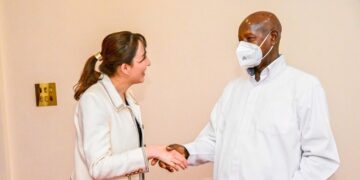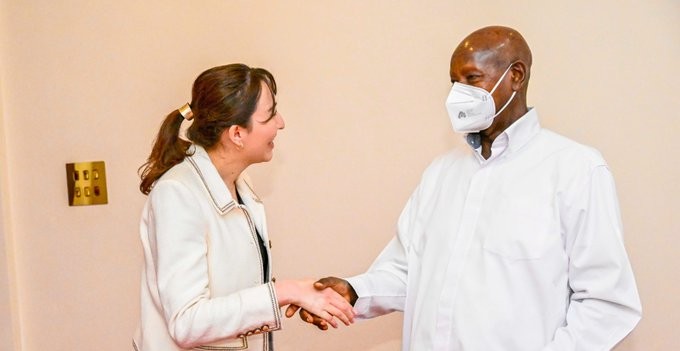President Yoweri Kaguta Museveni held fruitful discussions with Japan’s Vice Minister of Foreign Affairs, Ms Eri Arfiya, during her official visit to Uganda. The meeting took place at the State House, Entebbe.
Welcoming his guest, President Museveni expressed gratitude for Japan’s longstanding friendship and reaffirmed Uganda’s commitment to deepening the warm bilateral ties between the two nations. “We have a very good relationship with Japan—no issues at all,” President Museveni emphasised.
He praised Japan’s contributions to Uganda’s development, highlighting key infrastructure projects such as the Nile Bridge in Jinja, the Kampala Flyover, and the Gulu–Atiak Road. “The Japanese are our very good friends. These projects show their support for Uganda’s growth,” he said.
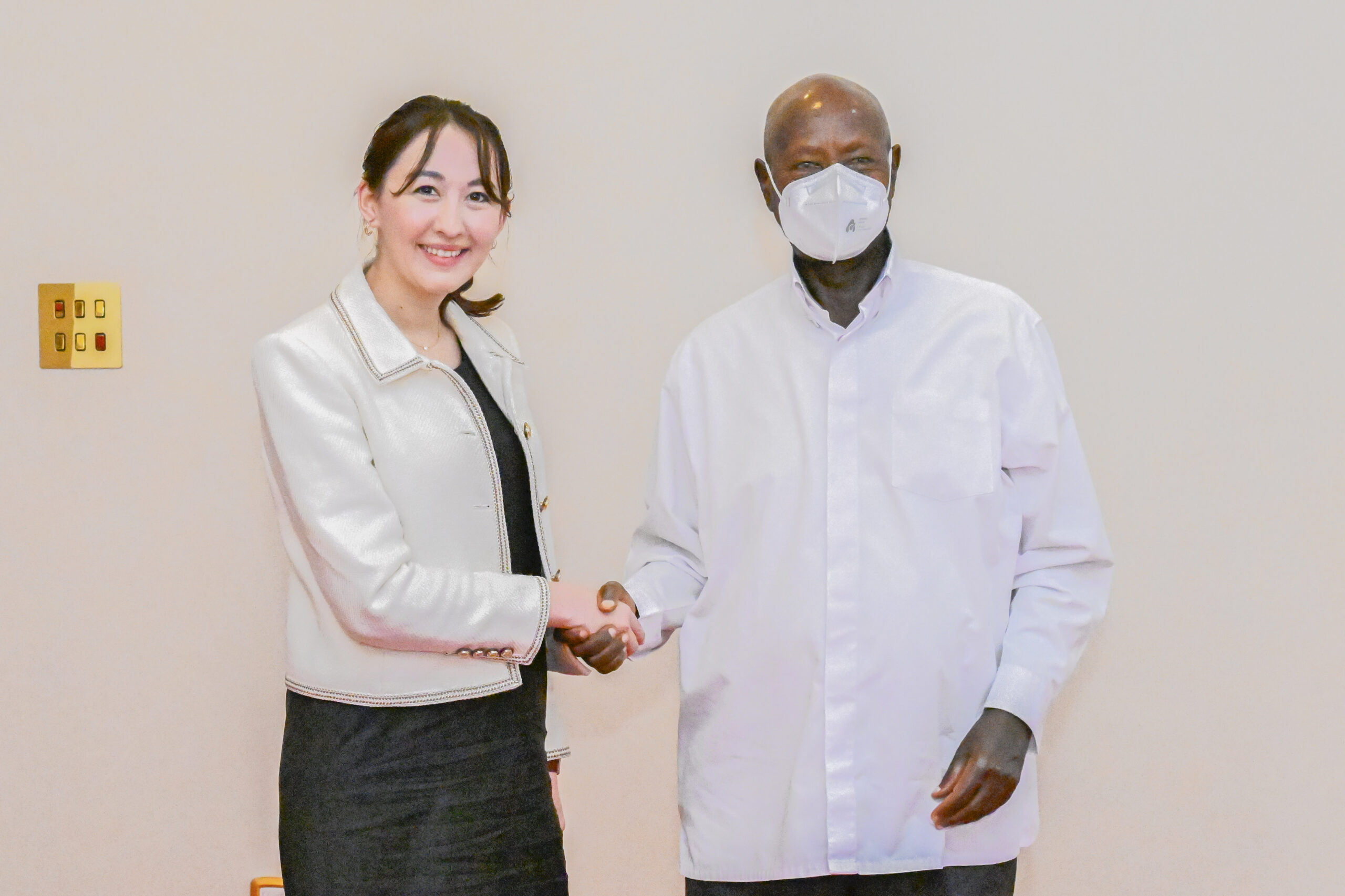
However, the President encouraged Japan to enhance its involvement in Uganda’s private sector, noting that it offers broader opportunities for job creation, economic expansion, and foreign exchange earnings. “I’ve consistently urged Japanese companies to invest in the private sector. Bilateral aid is welcome, but investment in business goes even further—it creates jobs, stimulates growth, and reaches more people,” he remarked.
President Museveni also called on Japanese investors to tap into Africa’s fast-growing market, projected to reach 2.5 billion people in the next 30 years, around a quarter of the global population. He proposed investment in large-scale infrastructure, particularly railways, to enable the African Continental Free Trade Area (AfCFTA) to function meaningfully.
“You cannot talk about a continental free trade area without connecting markets. Japan could support the development of a railway linking East Africa to the Congo and beyond, which would significantly lower the cost of doing business,” he said.
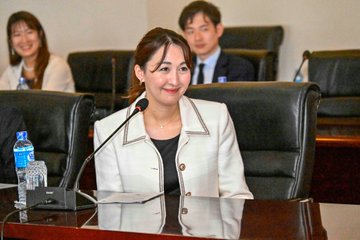
He further invited Japanese investment in toll roads and road construction equipment to support Uganda’s expanding infrastructure needs.
On the humanitarian front, President Museveni acknowledged Uganda’s responsibility in hosting refugees from neighbouring countries, attributing the influx to artificial colonial borders that split ethnic groups across the region.
“Politically, we have no problem with welcoming our people—the real challenge is logistical. These refugees are our brothers and sisters separated by colonial borders. We will continue to host them until peace returns to their countries,” he stated.
He also criticised foreign agents for fueling identity-based politics across Africa and reiterated the NRM’s historical commitment to promoting unity through politics of interest over ethnicity or religion.
In her remarks, Ms. Arfiya expressed appreciation for the warm reception and commended Uganda’s role in promoting regional peace and stability. She reaffirmed Japan’s continued humanitarian support and pledged to advocate for increased Japanese investment and infrastructure development in Uganda upon her return.
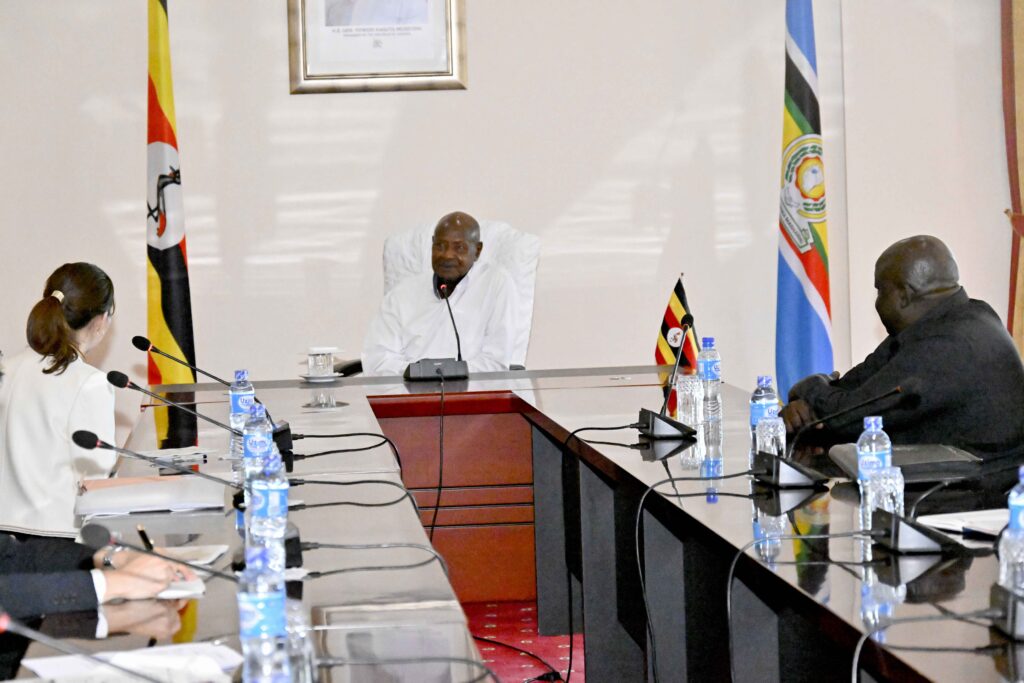
“Uganda has done an incredible job ensuring peace and stability here and in the region. Japan stands with Uganda in humanitarian efforts,” she said.
Ms. Arfiya also presented a formal invitation to President Museveni to attend the 9th Tokyo International Conference on African Development (TICAD), scheduled for August 2025. The President assured her that a high-level Ugandan delegation would attend the summit.
Ms Arfiya was accompanied by senior Japanese officials, including Mr Hayashi Tatsuro, Director of the Second Africa Division; Mr Higashi Kunihiko, Director of the Third Country Assistance Planning Division; and Mr Sasayama Takuya, Japan’s Ambassador to Uganda.
On the Ugandan side, the meeting was attended by the Minister of State for Foreign Affairs, Hon. Okello Oryem, and Mr. Elly Kafeero of the Ministry of Foreign Affairs.
